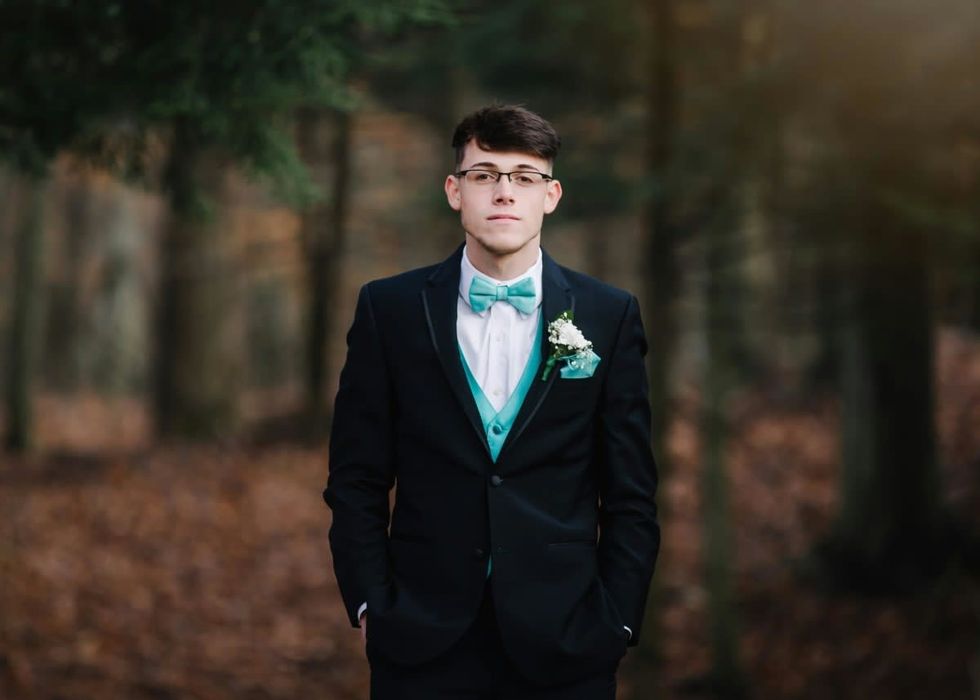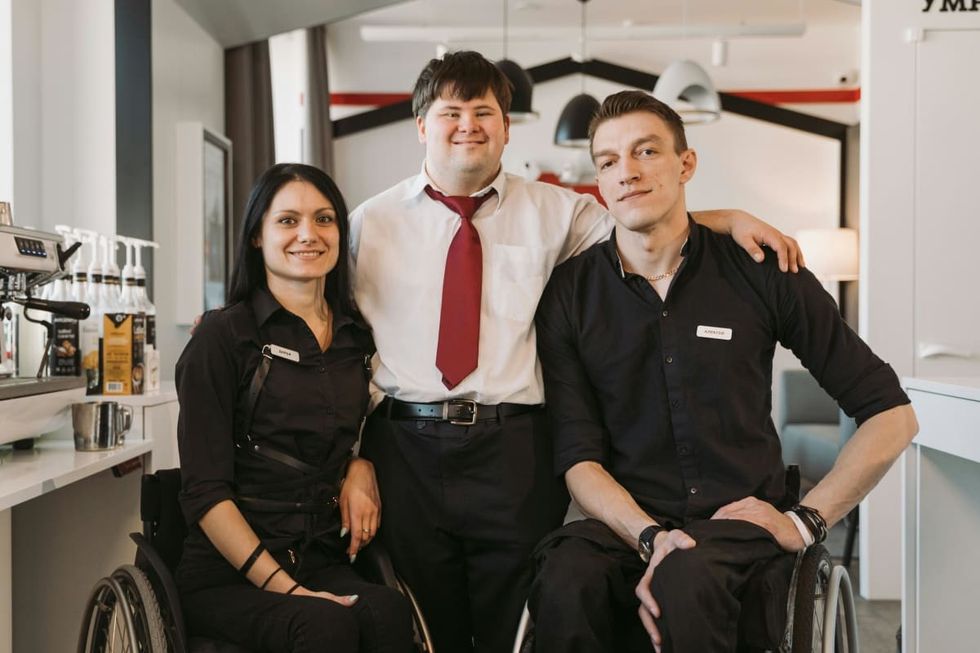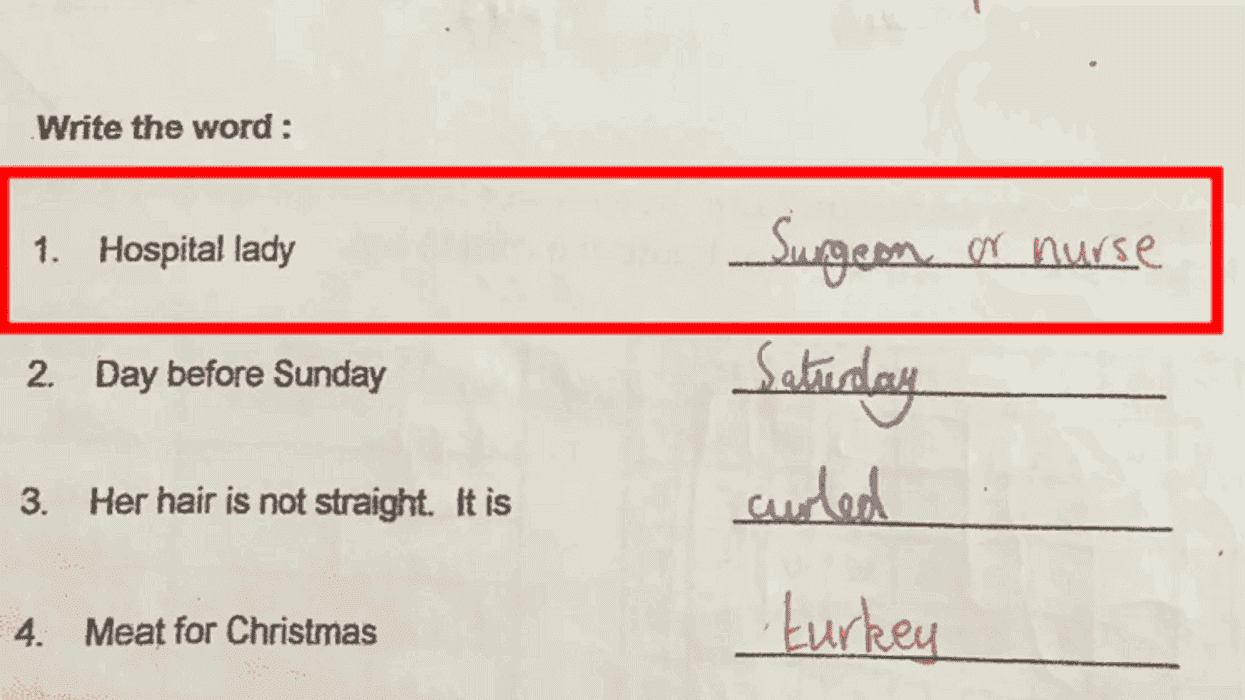In the fall of 2016, Shadow Ridge High School was preparing to hold its homecoming dance. Like many students, 17-year-old Daniel Rivas wanted a date. Despite his efforts, he faced rejection, likely because he had Down syndrome. Just when hope seemed lost, a classmate named Kylie Fronius asked him to the dance, according to Inspiration Post.

Kylie saw Daniel as more than a boy with Down syndrome; to her, he was a "Homie with an extra chromie." Her heartwarming gesture caught the community's attention and was covered by Fox5 Las Vegas, spreading rapidly. “I don’t think of kids that have a disability as being different,” Kylie said. “I think of them just being a normal person learning in a different way.”

Daniel’s mother, Tonya Rivas, a real estate professional, was moved by Kylie’s empathy. “It’s not about that Daniel has a disability,” sheadded, “It’s Kylie didn’t see any disability. That is what your heart wants as a mom.”
On the day of the homecoming dance, the couple were visited by the host of Fox5 Surprise Squad, Monica Jackson, who brought with her a bounty of surprises. Sponsored by United Nissan and America First Credit Union, the FOX5 Surprise Squad makes their way around the towns of Las Vegas, surprising lucky viewers.
“Your story touched so many people,” Jackson told Kylie and Daniel. “It's gonna be a pretty special night for you,” Jackson asked and Kylie said yes. “So we want you guys to arrive in style,” said Jackson. As she was saying this, a gleaming Rolls Royce came rolling towards them. Tonya gasped in surprise covering her mouth with the palm of her hand.
The next segment of the footage showed the teen couple seated in the back seat of the car, overjoyed at the amazeballs surprise. The car drove through a sunlit roadway, arriving at Aliante casino where the teens were ushered inside a bistro. There they met Chef Franco De Furia who served them spaghetti with meatballs, which were Daniel’s favorite. For Kylie, a pizza was brought over. The meal was followed by desserts and pastries that the duo relished with delight.
“What are your hopes for Daniel after high school,” Jackson asked Tonya after lunch. Tonya said that Daniel wanted to go to college and become a chef. She said she’d try her best to give him the education he wished to pursue. In a few moments, the group arrived at another scene. Students in glittery party dresses were hooting and cheering for the couple. The footage caption revealed that it was a “Red carpet surprise” organized by the students of the school.

The group walked inside and danced their hearts out. But the night of surprises wasn’t finished yet, “We are not done,” announced Jackson, adding, “We are sending you and your families to Disneyland.” The crowd burst into cheers and applause. There was another surprise for Daniel. After he passed out from high school, Daniel would receive a $10,000 scholarship.
When Daniel received his big surprise, Kylie wasn’t left out. Soon enough, she was gifted a glistening white brand-new Sentra. Don Forman, United Nissan’s owner extended the car towards Kylie as a surprise gift. She was gobsmacked. In addition, Daniel was also provided with ten tickets to his favorite Marvel’s Avengers station, which was disclosed in the behind-the-scenes footage. The day of surprises wrapped up. As Kylie and Daniel were seated in their newly-earned Rolls Royce, Kylie asked her partner, “You happy buddy?” He responded with a cool “Yeah!”

This was not just a story of empathy and kindness, but also about acceptance and unconditional love for others. When one focuses on others’ abilities more than their disability, they subconsciously learn to love themselves. In the story, it was Kylie who poured her empathy and looked at Daniel like he was as special as others. In the process, she found her joy, which made the entire event so heartwarming for people.

Nearly 8 million people watched their story and thousands commented. @maikahk1872 said, “I'm a grown man in tears right now. I pray my daughters grow to think and act like Kylie. What a beautiful soul she is! God bless her and her amazing mother who raised her right!” Lauding Kylie, @jameslivingstone7428 commented, “This young lady knows more about compassion and caring than many adults and so-called leaders. Well done young lady, your parent must be so proud of you, and if not, millions of others are!” @junedeike6144 added, “Thank God there are still young women with big hearts like this girl. She will be great when she gets older. Don't change girl. You are the best.”

Another person, @garysluhan7903, whose sister also had Down’s Syndrome reflected that, “These kids are just like us!” No wonder, the young lady won everyone’s hearts by treating Daniel with respect and love. “You just saw a young lady with a huge heart, and she was inspirational,” were Forman’s words from the footage. Forman said that being a part of the Surprise Squad was “truly fulfilling.”





















 What foods would you pick without diet culture telling you what to do?
What foods would you pick without diet culture telling you what to do?  Flexibility can help you adapt to – and enjoy – different food situations.
Flexibility can help you adapt to – and enjoy – different food situations.
 Anxious young woman in the rain.Photo credit
Anxious young woman in the rain.Photo credit  Woman takes notes.Photo credit
Woman takes notes.Photo credit 
 Revenge can feel easier than forgiveness, which often brings sadness or anxiety.
Revenge can feel easier than forgiveness, which often brings sadness or anxiety. 
 In the past two years, two malaria vaccines have become available for babies starting at 5 months of age.
In the past two years, two malaria vaccines have become available for babies starting at 5 months of age. By exploiting vulnerabilities in the malaria parasite’s defense system, researchers hope to develop a treatment that blocks the parasite from entering cells.
By exploiting vulnerabilities in the malaria parasite’s defense system, researchers hope to develop a treatment that blocks the parasite from entering cells. Created with
Created with 